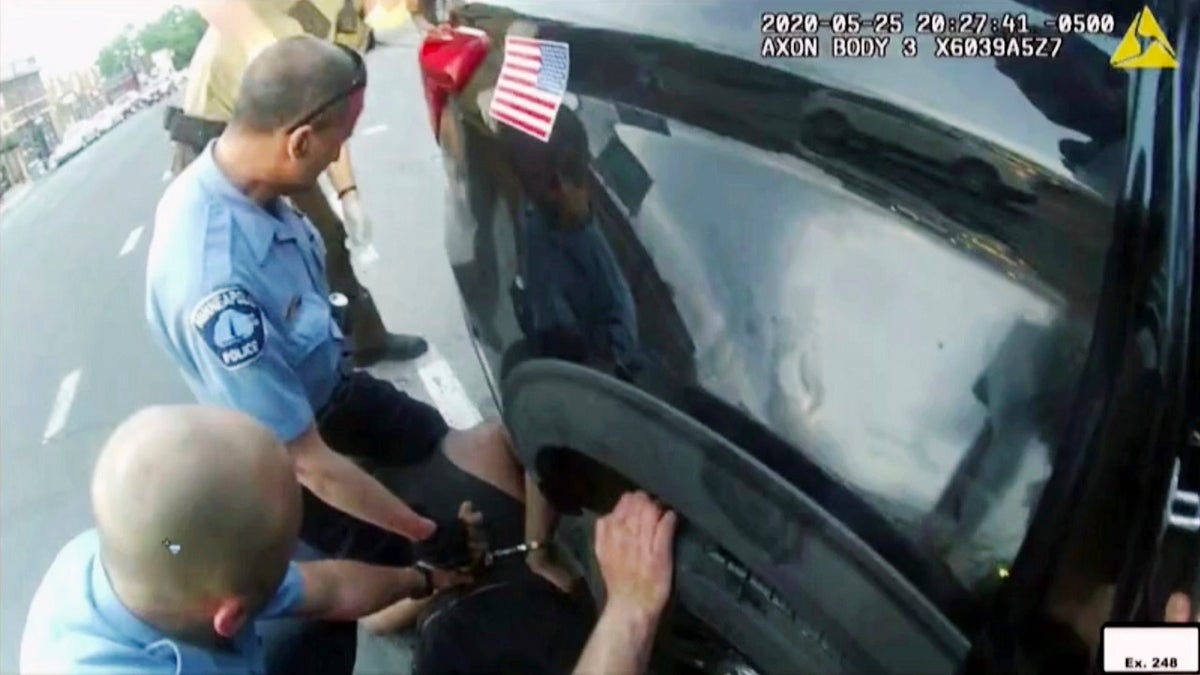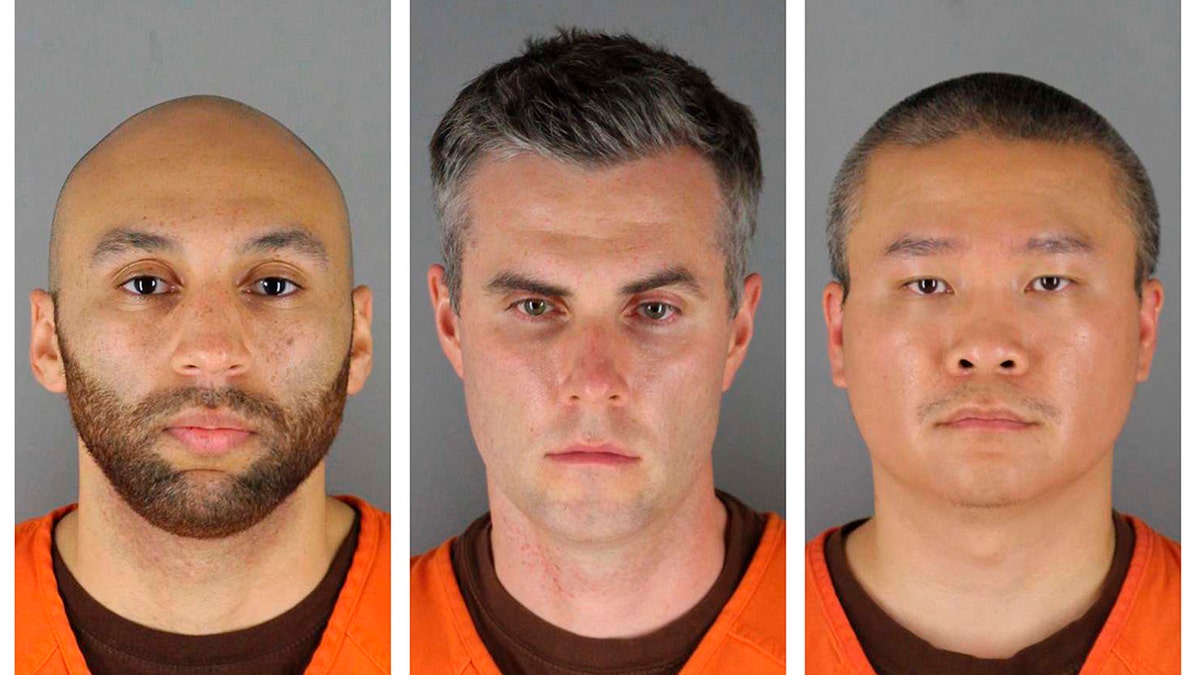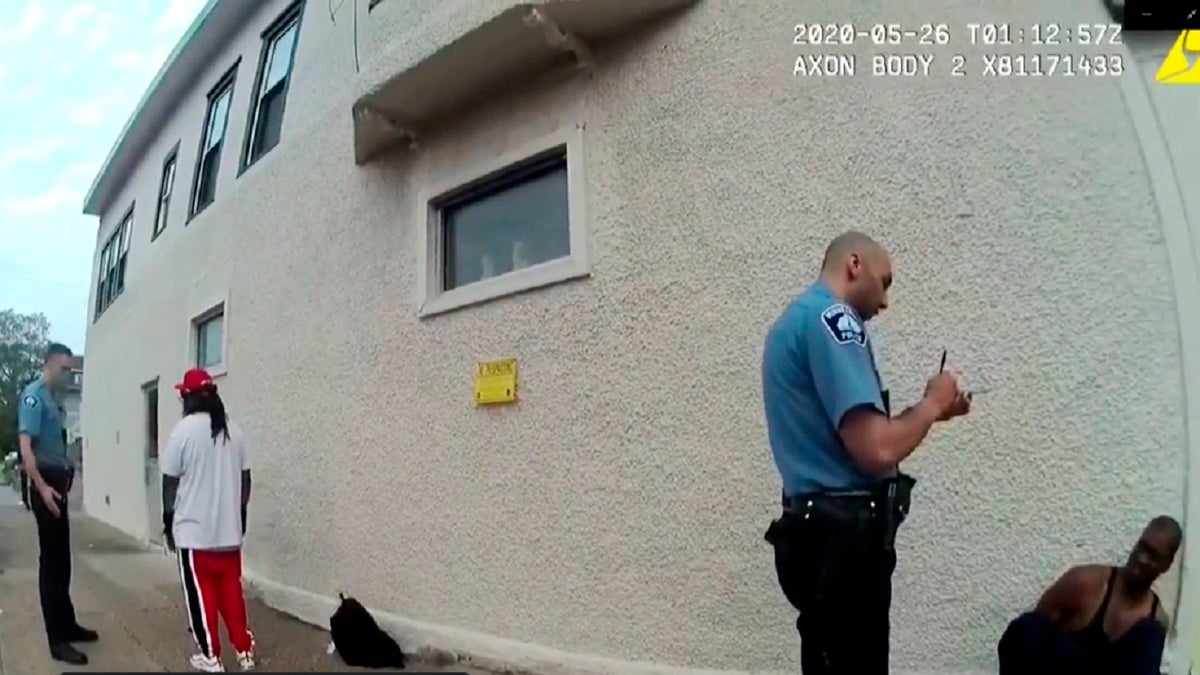Fox News Flash top headlines for February 9
Fox News Flash top headlines are here. Check out what's clicking on Foxnews.com.
A toxicologist who testified at the ongoing federal trial for three former Minneapolis police officers accused of violating George Floyd’s civil rights said Wednesday that neither drug use, nor heart disease, nor "excited delirium" caused Floyd’s May 2020 death.
Dr. Vik Bebarta, an emergency physician and toxicologist and professor at the University of Colorado in suburban Denver, bolstered the prosecution’s contention that Floyd died because of how Officer Derek Chauvin pressed his knee down on the Black man's neck for more than nine minutes as he pleaded "I can't breathe." He also agreed with other experts who have faulted the officers for failing to roll Floyd on his side, as they had been trained, so that he could have breathed freely.
The three officers – J. Alexander Kueng, Thomas Lane and Tou Thao – are accused of depriving Floyd, 46, of his rights when they failed to give him medical aid while he was handcuffed, facedown outside a convenience store where he allegedly tried to pass a counterfeit $20 bill. Kueng and Thao are also accused of failing to intervene.

FILE - In this image from police body camera video shown as evidence in court, paramedics arrive as Minneapolis police officers, including Derick Chauvin, second from left, and J. Alexander Kueng restrain George Floyd in Minneapolis, on May 25, 2020. (Minneapolis Police Department via AP, File)
GEORGE FLOYD DEATH: JUROR IN FEDERAL TRIAL FOR MINNEAPOLIS COPS DISMISSED, REPLACED WITH ALTERNATE
Earlier in the day, U.S. District Judge Paul Magnuson dismissed a juror, so he could be with his ailing son. Magnuson replaced the juror with one of six alternates lined up.
Last week, the trial was delayed for three days after one of the defendants tested positive for COVID-19.
Bebarta said he concluded that Floyd "died from a lack of oxygen to his brain" and that he had suffocated because his airway had been closed off. That was consistent with testimony from a lung specialist who said that Floyd could have been saved if officers had moved him into a position to breathe more easily.
GEORGE FLOYD DEATH: POLICE TRAINER SAYS COPS DID NOT PERFORM CPR DESPITE TRAINING

FILE - This combination of photos provided by the Hennepin County Sheriff's Office in Minnesota on June 3, 2020, shows, from left, former Minneapolis police officers J. Alexander Kueng, Thomas Lane and Tou Thao. (Hennepin County Sheriff's Office via AP, File)
Bebarta said Floyd did not die from the low levels of fentanyl and methamphetamine in his system, nor from his heart disease and high blood pressure. He said that on video from inside a convenience store before his fatal encounter with police, Floyd did not appear to be seriously intoxicated or experiencing an overdose. But he did not dispute a store clerk’s earlier testimony that Floyd seemed high.
"He was awake, walking, communicating, walking quickly at times," Bebarta said.
Both prosecutor Manda Sertich and Thao's attorney, Robert Paule, questioned the doctor about the disputed condition of excited delirium. Bebarta said Floyd did not display any symptoms that doctors typically associate with the condition, such as high pain tolerance, superhuman strength and endurance. He said he's probably seen at least 1,000 such patients over the years.
"He did not die from what would be referred to as excited delirium," Bebarta testified.
Later, he noted that experts have had trouble defining the condition and that some medical groups, including the World Health Organization, do not recognize it.
MINNEAPOLIS POLICE TRIAL: GEORGE FLOYD DIED BECAUSE HIS BREATHING WAS RESTRICTED, EXPERT TESTIFIES

FILE - In this image from police body camera video shown as evidence in court, Minneapolis police Officers Thomas Lane, left, and J. Alexander Kueng, second from right, gather information as they take George Floyd into custody outside Cup Foods in Minneapolis, on May 25, 2020. (Minneapolis Police Department via AP, File)
Video presented earlier in the trial shows that Lane expressed concern about excited delirium and asked whether they should roll Floyd on his side, but that Chauvin rebuffed him. Previous testimony also has established that Chauvin — the most senior officer on the scene with 19 years of experience — told his fellow officers after Floyd became unresponsive, and they couldn’t find a pulse, to wait for an ambulance that was on its way. Officers kept restraining Floyd until the ambulance got there, according to testimony and video footage.
Bebarta said he believed the officers could have revived Floyd if they had started CPR when they lost his pulse — and that they would have been his best chance for survival.
CLICK HERE TO GET THE FOX NEWS APP
"Every minute that lifesaving measures are not given, like CPR or chest compressions, they have a 10% lower chance of survival," the doctor said, citing American Heart Association guidelines.
Kueng, who is Black, Lane, who is White, and Thao, who is Hmong American, are charged with willfully depriving Floyd of his constitutional rights while acting under government authority. The charges allege that the officers’ actions resulted in Floyd’s death.
Fox News' Mills Hayes and The Associated Press contributed to this report.


